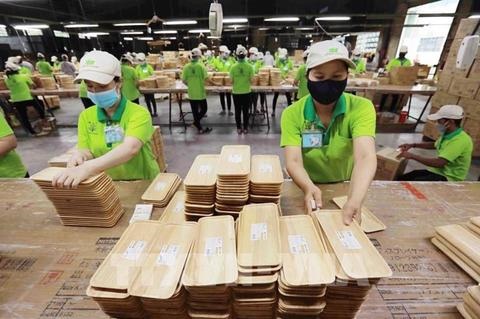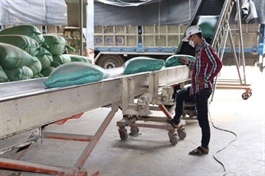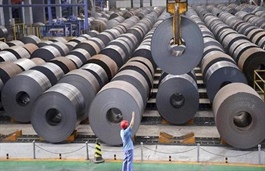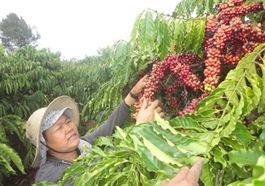Industry talks up prospects for wood exports
Industry talks up prospects for wood exports
Việt Nam's wood and wood product exports are expected to boom in the second half of this year amid positive signs from the global economy, according to industry insiders.

Workers make wood furniture for export in Bình Dương Province. Export of wood and wood products is forecast to rise during the rest of this year.— Photo vneconomy.n |
According to customs figures, as of July 15 they were worth US$8.1 billion, a year-on-year increase of 23.3 per cent.
The US remained the biggest importer, buying up more than 50 per cent of Việt Nam's exports, followed by China, Japan and South Korea.
Nguyễn Chánh Phương, vice chairman of the Handicraft and Wood Industry Association of HCM City (HAWA), said firms had more export orders in the first half of the year compared to the same period last year, and some have enough to keep them busy until the end of the year.
Exports to new markets such as India and the Middle East have seen remarkable growth, he said.
Ngô Sỹ Hoài, general secretary of the Vietnam Timber and Forest Products Association, said having abundant materials mainly sourced domestically and with traceability is another important factor in the export growth.
Talking about the export prospects for the rest of the year, he said the US seems set to cut interest rates this year, which would boost demand there.
In addition, the US Department of Commerce recently decided to stop its investigation into potential tax evasion related to wooden cabinets imported from Việt Nam, an important factor in promoting exports to the country, he added.
With favourable factors like the global economic recovery, exports of wood and wood products could top $17.5 billion this year, according to HAWA.
The solid growth in exports in the first half is good sign for the wood industry amid difficulties such as rising transport costs and protectionism, it said.
But Nguyễn Quốc Khanh, its chairman, said added value in the industry is not high because many Vietnamese companies operate as original equipment manufacturers (OEMs) for large foreign brands.
Shifting from OEM to original design manufacturing is imperative to increase the value of the products, he added.
Analysts said firms also need to invest in product design and technology and strengthen trade promotion to export to new markets.
Hà Tất Thắng, director of Techworld Solutions Vietnam Co., Ltd., said it normally takes five years to recover the costs of digital transformation and a company with around 1,000 workers requires investment cost of VNĐ10-15 billion.
Thus, with a trend of gradually shifting to ODM from OEM, firms should soon start leveraging technology to create products with higher competitive advantages, he added.
























